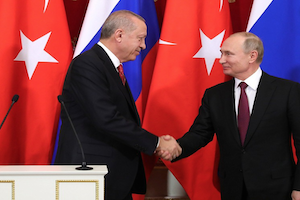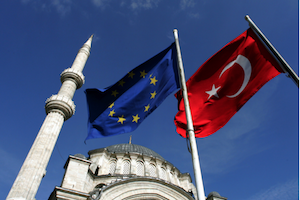The Middle Corridor Calls for Turkish-European Cooperation
By Barçın Yinanç
January 17, 2022
While it was fear of Russia that prevented the Central Asian countries from showing an interest in the Middle Corridor, it is ironically the same Russian factor that has today led to the reinvigoration of this alternative to the Northern Corridor. However, crucially, the future of the Middle Corridor depends on European interest and particularly on the European Union revising its attitude toward Turkey that has been spearheading the project for more than a decade and that is indispensable to its realization. European decision makers must recognize that they need to join hands with Turkey to make the Middle Corridor come to fruition.

Turkey's Russia Affair
By Suat Kınıklıoğlu
September 23, 2019
Turkey’s deepening partnership with Russia needs to be situated within a larger context. Turkey is moving closer toward Russia at a time when the West is beset by considerable turmoil. Seen from Ankara, both Europe and the U.S. increasingly look weaker, divided and ideologically adrift. Above all, though, Ankara’s pivot toward Moscow is driven by the domestic political needs of the Turkish leadership. The primary benefit of deepening the relationship with Russia lies in the legitimization of the current authoritarian rule. Yet ultimately the endeavor to reorient Turkey toward Russia and Eurasia faces the challenge that Turkey’s democratic tradition poses.

New Tone, Old Substance: Erdoğans European Gambit
By Gareth H. Jenkins
September 10, 2018
The attempt by President Recep Tayyip Erdoğan to offset the fallout from the crisis in Turkey’s relations with the US by re-engaging with the EU is unlikely to persuade Brussels either to revitalize Turkey’s stalled accession process or to provide sufficient financial aid to prevent the country’s economy from sliding into recession. Although a softening in tone and an increase in dialogue raises the possibility of cooperation in areas of mutual interest, nor is there much prospect of the re-engagement leading to a significant easing in Erdoğan’s repressive rule.




